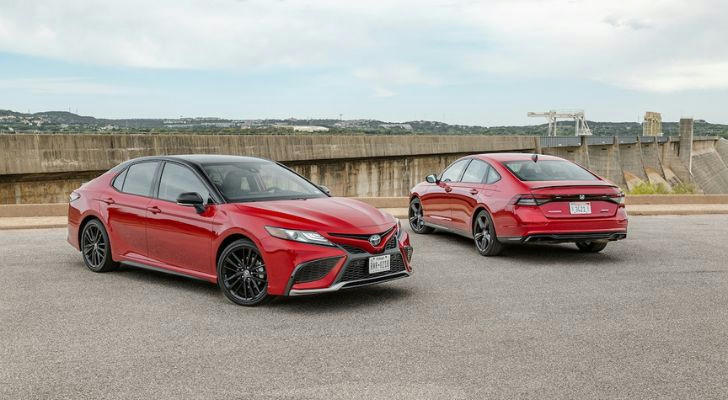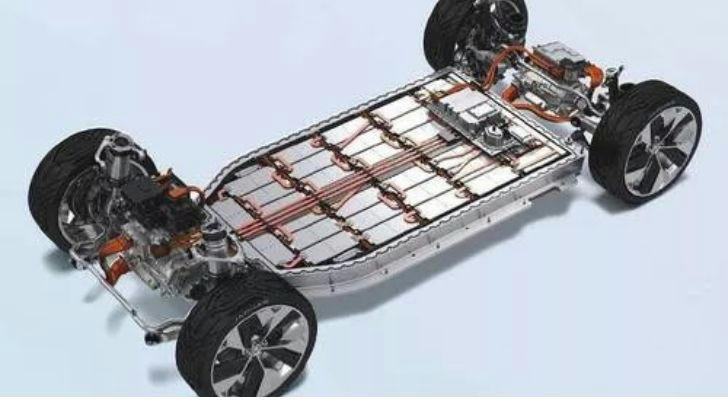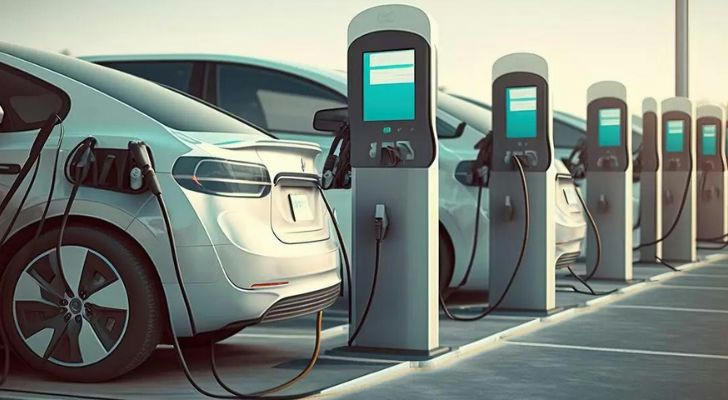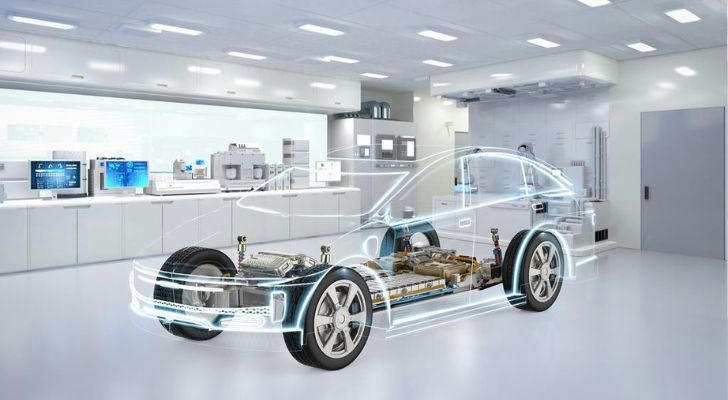Electric vs.Hybrid Cars: Which 2024 Model Offers the Best Value?

The popularity of electric vehicles (EVs) and hybrid electric vehicles (HEVs) has surged as consumers and policymakers alike prioritize sustainability and fuel efficiency. EVs, with their promise of zero emissions and cutting-edge technology, are rapidly gaining traction, driven by advancements in battery technology and increasing environmental awareness. Meanwhile, HEVs continue to attract buyers seeking improved fuel economy and reduced emissions without fully committing to electric driving. This growing shift reflects a broader movement toward greener automotive solutions.

Comparison between electric vehicles (EV) and hybrid electric vehicles (HEV).
When comparing electric vehicles (EVs) and hybrid electric vehicles (HEVs), several key aspects stand out.
Reason 1: Power Systems
EVs rely solely on advanced battery technology and high-efficiency electric motors, offering a smooth and efficient drive. In contrast, HEVs combine traditional engines with electric motors, balancing power and efficiency.
Reason 2: Endurance
EVs offer longer-term benefits with increasing battery capacities and expanding charging networks, although range and charging time can vary.
Reason 3: Maintenance Costs
EVs generally incur lower maintenance due to fewer moving parts, whereas HEVs require upkeep for both their engine and electric components.

Major EV and HEV models on the market in 2024.
- Popular electric vehicles (EVs)
Tesla Model 3
Range: 358 miles (about 576 kilometers)
Charging time: fast charging takes about 30 minutes to charge to 80% of the battery
Technical innovation: autonomous driving system, panoramic sunroof, large-screen central control system
Market feedback: highly praised driving experience and technical configuration, leading sales
Ford Mustang Mach-E
Range: 300 miles (about 483 kilometers)
Charging time: fast charging takes about 10 minutes to increase the range by 61 miles (about 98 kilometers)
Technical innovation: SYNC 4 infotainment system, autonomous driving assistance system
Market feedback: strong performance and design, positive consumer response
Boeing ID.4
Range: 250 miles (about 402 kilometers)
Charging time: fast charging takes about 38 minutes to charge to 80% of the battery
Technical innovation: 12 inch touch screen, rich safety assistance functions
Market feedback: good driving comfort, environmental protection performance is popular
- Popular Hybrid Electric Vehicles (HEV)
Toyota Prius
Fuel efficiency: 55 MPG (about 4.3 L/100km)
Battery capacity: 1.3 kWh (with fuel engine)
Technical innovation: Adaptive cruise control, lane keeping assist system
Market feedback: Long-term market leader with high reliability and fuel economy
Honda Clarity
Fuel efficiency: 42 MPG (about 5.6 L/100km)
Battery capacity: 1.7 kWh
Technical innovation: Honda Sensing safety system, intelligent infotainment system
Market feedback: Spacious space, excellent performance of hybrid system
Toyota RAV4 Prime
Fuel efficiency: 94 MPGe (about 2.5 L/100km electric mode), 38 MPG (about 6.2 L/100km hybrid mode)
Battery capacity: 18.1 kWh
Technical innovation: Advanced driver assistance technology, strong acceleration performance
Market feedback: As a high-performance PHEV, it is highly praised by consumers

Cost-Benefit Analysis
Car Purchase Cost:
EVs generally have a higher purchase cost, but government subsidies and incentives can reduce the actual cost. HEVs have a relatively low purchase cost, but are still higher than traditional fuel vehicles.
Operation Cost:
EVs have a lower operating cost, mainly because electricity is cheaper than gasoline and maintenance costs are lower. HEVs offer higher fuel efficiency, but still require regular maintenance of traditional engines.
Residual Value:
The residual value of EVs increases with technological progress and market acceptance. HEVs generally have better residual value retention, but are still affected by market and technological developments.
Technological Innovation
Intelligent Assistance System:
EVs may be equipped with more advanced autonomous driving and intelligent assistance systems, such as Tesla's Autopilot. HEVs are also generally equipped with advanced safety systems and driver assistance features, but autonomous driving technology is relatively rare.
Internet of Vehicles:
EVs generally have more complete Internet of Vehicles features and remote control technology. The Internet of Vehicles features of HEVs are also gradually improving, but the popularity and intelligence level may be low.
Autonomous driving technology:
EVs lead in autonomous driving technology, such as Tesla's fully autonomous driving option. HEVs may have autonomous driving assistance, but full autonomous driving technology is still under development.
Consumer evaluation:
EVs are generally favored by environmentally conscious consumers, especially those with advanced technology and excellent performance. HEVs are well received for their advantages in fuel economy and long-distance driving.
Sales data:
EV sales have increased significantly in recent years, especially for models with strong performance in the market. HEVs continue to gain market share in terms of fuel efficiency and daily practicality.
Brand reputation:
EV brands such as Tesla have strong market influence and technological leadership. HEV brands such as Toyota's Prius are known for their long-term reliability and energy-saving technology.
Summary
In 2024, the market competition for electric vehicles (EV) and hybrid electric vehicles (HEV) will be fierce. With its zero emissions and continuously optimized battery life, EVs have gradually become the first choice for consumers with strong environmental awareness. Technological innovation and improvements in charging infrastructure have also promoted their popularity. In contrast, HEVs still remain highly competitive in daily use due to their balance between fuel economy and compatibility with traditional fuel vehicles.
In the future, automotive technology will develop towards higher electrification, intelligence and automation. Advances in battery technology will further extend the range of EVs and shorten charging times. At the same time, the maturity of autonomous driving and Internet of Vehicles technologies will significantly improve driving experience and safety. These trends will have a profound impact on consumer choices, especially in the context of increasingly stringent environmental regulations and continued technological innovation.
